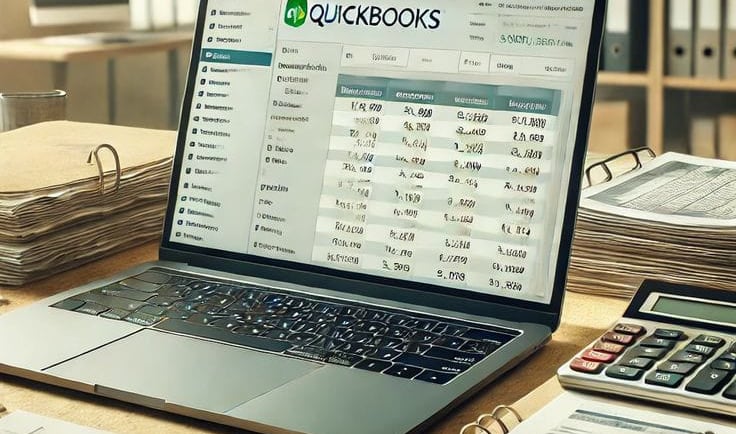Stop Guessing. Start Clearlyze-ing: The 3 E-Commerce Accounting Landmines You Need to Avoid
The world of e-commerce in 2025 is an exhilarating place. From the explosion of Social Commerce to the immersive appeal of Live Shopping on platforms like TikTok Shop and Instagram Live Shopping, the growth opportunities for sellers on Shopify and Amazon FBA are unprecedented. But behind every viral product launch and surge in sales is a critical challenge: complex, messy finances.
10/23/20253 min read


The world of e-commerce in 2025 is an exhilarating place. From the explosion of Social Commerce to the immersive appeal of Live Shopping on platforms like TikTok Shop and Instagram Live Shopping, the growth opportunities for sellers on Shopify and Amazon FBA are unprecedented. But behind every viral product launch and surge in sales is a critical challenge: complex, messy finances.
Many successful e-commerce business owners hit a wall when their rapid growth outpaces their financial infrastructure. At Clearlyze, we see the same critical accounting mistakes trip up high-performing sellers again and again. It’s time to move past basic spreadsheets and embrace the precision of modern AI accounting tools.
Here are the three most searched, most costly accounting problems for today's multi-channel e-commerce firm.
1. The COGS Conundrum: You’re Underestimating Your True Cost of Goods Sold
One of the quickest ways to erode your profit margin is by miscalculating your Cost of Goods Sold (COGS). This goes far beyond the simple unit cost of your product. For an e-commerce business, your true COGS must include every expense required to get the product ready for sale.
Sellers frequently fail to account for:
Inbound freight and shipping costs.
Customs duties and import fees.
Amazon FBA or 3PL (Third-Party Logistics) fulfillment fees.
Packaging and preparation labor.
If you only book the raw purchase price of the inventory, your Gross Profit Margin is a fantasy. Your books will show a higher profit than you actually have, which leads to poor pricing decisions and a painful tax surprise. Solving this requires setting up a sophisticated system that accurately tracks inventory and applies the correct costs at the moment of sale, ensuring you have the data needed to make proactive business decisions.
2. The Net Deposit Deception: Why Booking Deposits as Revenue is a Fatal Flaw
This is the most common mistake for high-volume sellers. When Shopify or Amazon sends a lump sum of cash (a "deposit") to your bank account every two weeks, it's tempting to just record that deposit amount as your revenue. This is a massive bookkeeping error that violates the matching concept of accrual accounting.
A platform deposit is not pure revenue it’s the net result after the platform has already deducted crucial figures:
Sales Revenue
Refunds and chargebacks
Shipping/Fulfillment Credits
Advertising and seller fees
By booking the net deposit, you miss all this vital data, leading to a distorted view of your financials. True clarity requires multi-channel reconciliation, separating all these components to give you a clean Profit and Loss (P&L) statement by sales channel. This detailed approach is the only way to accurately track metrics like CAC (Customer Acquisition Cost) and ROAS (Return on Ad Spend).
3. The Labyrinth of Sales Tax and Economic Nexus
Compliance with sales tax in a multi-state or global environment is a non-negotiable challenge. The concept of Economic Nexus means you are liable to collect and remit sales tax in any state where your sales volume or number of transactions exceeds a specific threshold, even if you don't have a physical presence there.
Trying to track this manually is a recipe for disaster. Failing to comply can result in serious penalties. The solution is automation. Expert e-commerce accountants leverage integrated tools like TaxJar or Avalara to:
Monitor your Nexus footprint across the country.
Ensure taxes are correctly collected on Shopify and other non-Amazon channels.
Accurately record collected taxes as a liability (not revenue) on your balance sheet.
4.Gaining Clarity with Clearlyze
In the face of complex e-commerce trends from Hyper-Personalization to the rise of Predictive Analytics your accounting shouldn't hold you back.
At Clearlyze, we specialize in implementing the robust systems (QuickBooks Online and Xero integration) and accrual accounting practices that allow you to grow without fear. We provide the financial reports you need to finally see your Accurate Gross Profit, manage cash flow, and make the data-driven decisions necessary to scale your business.
Ready to stop guessing and start scaling? Let Clearlyze bring clarity to your e-commerce finances.
© 2018-2025. All rights reserved.
Clearlyze
Quick Links
Meet our Team
Blog
Contact
For Support & inquiries:
📧 team@clearlyze.com
🌍 Serving Clients Worldwide
Accounting Calculators
